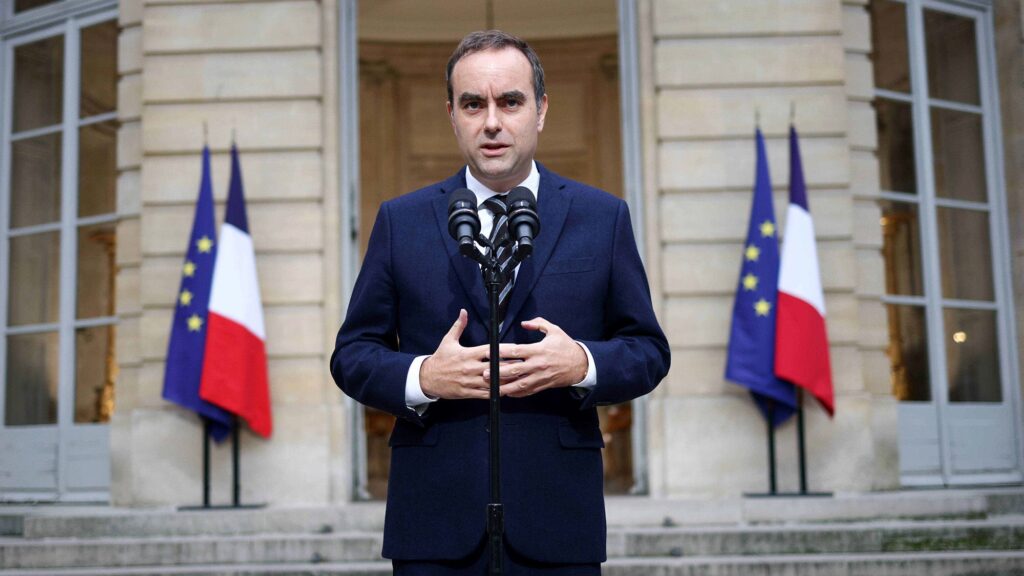
France has plunged deeper into political turmoil after Prime Minister Sébastien Lecornu resigned just 27 days into office, marking the third resignation of a French prime minister this year. The shocking move has intensified pressure on President Emmanuel Macron, whose centrist government is struggling to maintain stability amid mounting economic and political tensions.
A 27-Day Tenure – France’s shortest in modern history
Lecornu, 39, who was appointed on September 9, announced his resignation only 14 hours after unveiling his cabinet, citing “partisan appetites” that made governance impossible. His short-lived tenure is now the briefest in modern French history.
“The conditions were not fulfilled for me to carry out my function as prime minister,” Lecornu said in his resignation statement.
The resignation forced the cancellation of Lecornu’s first cabinet meeting, as opposition parties prepared to table a no-confidence motion this week.
Political deadlock and market turmoil
The resignation comes as France faces its deepest political crisis in over a year, following Macron’s failed gamble in the 2024 legislative elections, which resulted in a hung parliament.
Financial markets reacted sharply to the instability:
- French stocks tumbled,
- The euro fell 0.7% to $1.1665,
- And borrowing costs surged, reflecting investor anxiety over the eurozone’s second-largest economy.
A Danske Bank analyst, Kirstine Kundby-Nielsen, warned that the “lack of parliamentary cooperation” would put further pressure on France’s fiscal outlook and the euro.
Far Right smells opportunity
The crisis has emboldened Marine Le Pen’s far-right National Rally (RN), which immediately called for snap parliamentary elections.
“It would be wise for Macron to resign,” Le Pen said, urging fresh polls as “absolutely necessary.”
Jordan Bardella, RN’s party leader, declared that the movement is “ready to govern,” signaling their intent to capitalize on Macron’s weakened position ahead of the 2027 presidential elections.
Macron’s next move
President Macron now faces limited and risky options. He could either:
- Appoint a new prime minister, his eighth since 2017,
- Call snap elections, or
- Resign, an option experts say could pave the way for the far right to seize power.
Mujtaba Rahman, Managing Director for Europe at Eurasia Group, described Macron’s situation as “hazardous,” adding:
“We believe Macron will appoint a new prime minister and challenge the fractured parliament to cooperate and avoid a fiscal and political crisis.”
A Government in crisis
Lecornu’s cabinet faced backlash even before its first meeting. Critics condemned the lack of new faces, including the reappointment of Bruno Le Maire, the long-serving finance minister, now as defence minister.
The Les Républicains party, a key coalition partner, accused Macron of “offering no change” and refused to provide parliamentary support.
France’s public debt is now among the highest in Europe, trailing only Greece and Italy, with a debt-to-GDP ratio nearly double the EU’s 60% threshold.
What’s next for France
As Macron’s approval ratings sink and the opposition gains ground, France stands at a political crossroads. With markets jittery, public trust eroding, and the far right rising, the coming weeks could determine the fate of Macron’s presidency and the direction of French democracy.
